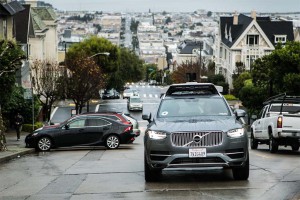Uber, even though it has promised to clean up its odious management culture, is still getting into trouble of trying to evade laws and regulations in various countries where it operates.
Taxi drivers in London, in one case that his gotten an enormous amount of attention, want to charge Uber’s top management in the United Kingdom with perjury after Transport for London accused ride-sharing company of lying to the High Court.
In a 21-page letter to Uber seen by The Sunday Times, TfL says it refused to renew the company’s operating license in September because Uber had given it “materially false and misleading” information many times.
Had Uber told the truth, its operating model would probably have been found “unlawful” in a 2015 High Court action, TfL writes, accusing the company of giving “false” evidence to win the case, according to the Times of London.
(Uber loses big court case in London. Click Here for the story.)
The Licensed Taxi Drivers’ Association, which represents drivers of black cabs and was a party to the court action, said last week it would apply to overturn the judgment, which favored Uber.
Meanwhile, Uber also has managed to get in trouble in a less publicized case on the other side of the world.
After inspecting Uber’s tax records since it started operations in Vietnam in 2014 to June 2017, the Ho Chi Minh City Department of Taxation requested Uber BV, which is chartered in the Netherlands, to pay the tax arrears.
Notably, Uber will have to pay the equivalent $461,589 in taxes withheld, as well as VND26.3 ($1.16 million) of value added taxes and $641,841 in personal income tax.
(Click Here for more about GM’s ride-sharing plans.)
Besides, the taxation authority issued a fine of $452,805 for the company’s false tax declaration and the company will have to pay $215,412 to even its balance.
Uber sent an official complaint about the decision to the US-ASEAN Business Council, however, which the Ministry of Finance rejected.
Following a request by the US-ASEAN Business Council, the ministry held a meeting with representatives from the council and Uber to discuss the tax collection and how the Double Taxation Avoidance Agreement between Vietnam and the Netherlands can be applied in the case.
After inspecting the tax payments of Uber, the Ho Chi Minh City Department of Taxation verified that the firm has generated income in Vietnam from its ride-hailing services with a network of local driver partners. It matches drivers of private vehicles to those seeking taxi rides, makes decisions on rates and promotional offers, and receives payments from fares.
(To see more about Uber’s criminal probe due to “espionage,” Click Here.)
Uber’s revenue earned through its driver partners, who count as permanent employees, in Vietnam for a period of six to 12 consecutive months, making it subject to foreign contractor tax under Vietnamese regulations and the Vietnam-Netherlands Double Taxation Avoidance Agreement, the ministry said in the statement.

